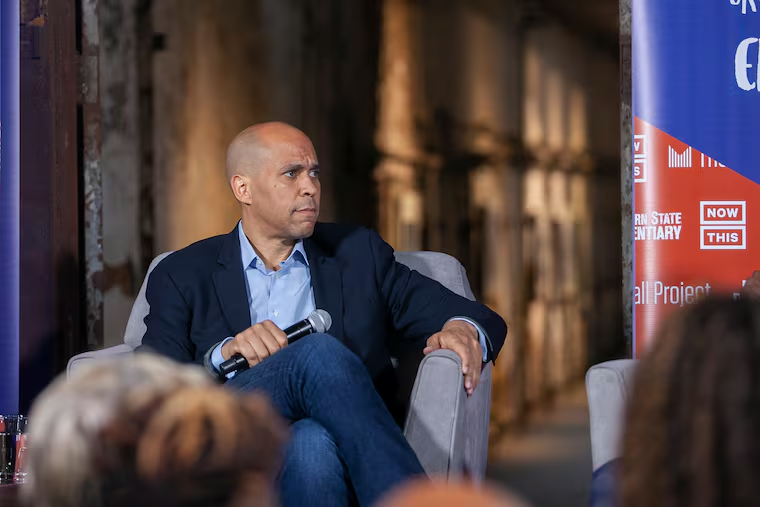Cory Booker on the 2020 election, the coming Biden presidency, and Black farmers
The New Jersey Democrat is optimistic about everything from the country’s economic outlook to his party’s prospects for taking control of the Senate Georgia’s run-off elections next month.

Sen. Cory Booker has long been known for staying positive. And weeks after winning a second full term, the New Jersey Democrat is optimistic about everything from the country’s economic outlook to his party’s prospects for taking control of the Senate after Georgia’s runoff elections next month.
Booker last month proposed legislation that he said would begin correcting generations of discrimination against Black farmers who were stripped of their land. Cosponsored by Sens. Elizabeth Warren (D., Mass.) and Kirsten Gillibrand (D., N.Y.), the Justice for Black Farmers Act would reform the Department of Agriculture and create a land grant program to encourage new Black farmers.
Booker, who unsuccessfully sought the Democratic presidential nomination this year, has throughout his career pushed for addressing racial and economic inequality, as well as criminal justice reform.
Booker spoke with The Inquirer this week about the 2020 election, President-elect Joe Biden’s incoming administration, and the progressive movement in New Jersey.
This conversation has been lightly edited for clarity and length.
How did you get involved with the agriculture bill?
“A lot of it started as mayor of Newark, seeing how broken the food system was, and the disparate impact that has on communities of color. The next step was learning about the USDA and its often overtly discriminatory history. African Americans worked their land as farmers, but because there was such wealth in the land, there were efforts to strip them of that. From 1920 until now, you saw African Americans losing about 90% of the farmland they owned.”
How do you feel Democrats — both parties — should move forward in light of polls that indicate a portion of voters have doubts the election was conducted fairly?
“What the current president has done is wounding our democracy, and I think we’re going to be feeling that for years to come. This is something straight out of the pages of what our adversaries like Russia want, for Americans to lose faith in free and fair elections.
» READ MORE: Fact-checking false claims about the presidential election by Trump and his allies
“This is a very dangerous thing that the president has done, and has been aided and abetted by people in higher office who should know better. This is bigger than any party, and I think this is a challenge for all of us to stand up and defend the core principles of our democracy.”
What are your priorities for 2021, given that we will start to come out of the pandemic and be under a new administration?
“A lot of this is going to depend on the outcome of Georgia and the Senate race. [Senate Majority Leader] Mitch McConnell seems to take pleasure in killing bipartisan bills, and if we lose Georgia, I don’t expect Mitch McConnell to change. COVID is not going to be like a switch — it will take some months. That means people are going to need help in the interim, so the next administration has to step up and continue to deal with that crisis.
“The economy has to get out of this ditch, and one way is to invest in infrastructure: from green infrastructure to roads and bridges to, in New Jersey, a new tunnel under the Hudson, to broadband. These things have the ability to supercharge the creation of hundreds of thousands of jobs. But these are bold, ambitious things that really necessitate a [Democratic-controlled] Senate. So I’m hopeful that we will win.”
New Jersey is getting a millionaire’s tax, legal marijuana, a paid sick-leave policy. Do you think the state is becoming more progressive?
“We have strong independent and moderate strength in addition to that progressive element. A lot of these are very mainstream ideas. Most Americans want a higher minimum wage. Most Americans want legal marijuana. And we are a state of great empathy, a state that is concerned about our neighbors.
“We care about our seniors and our schools. I love the energy and values of our state — we believe in fairness and justice. I don’t know if that’s ‘progressive’ or not.”